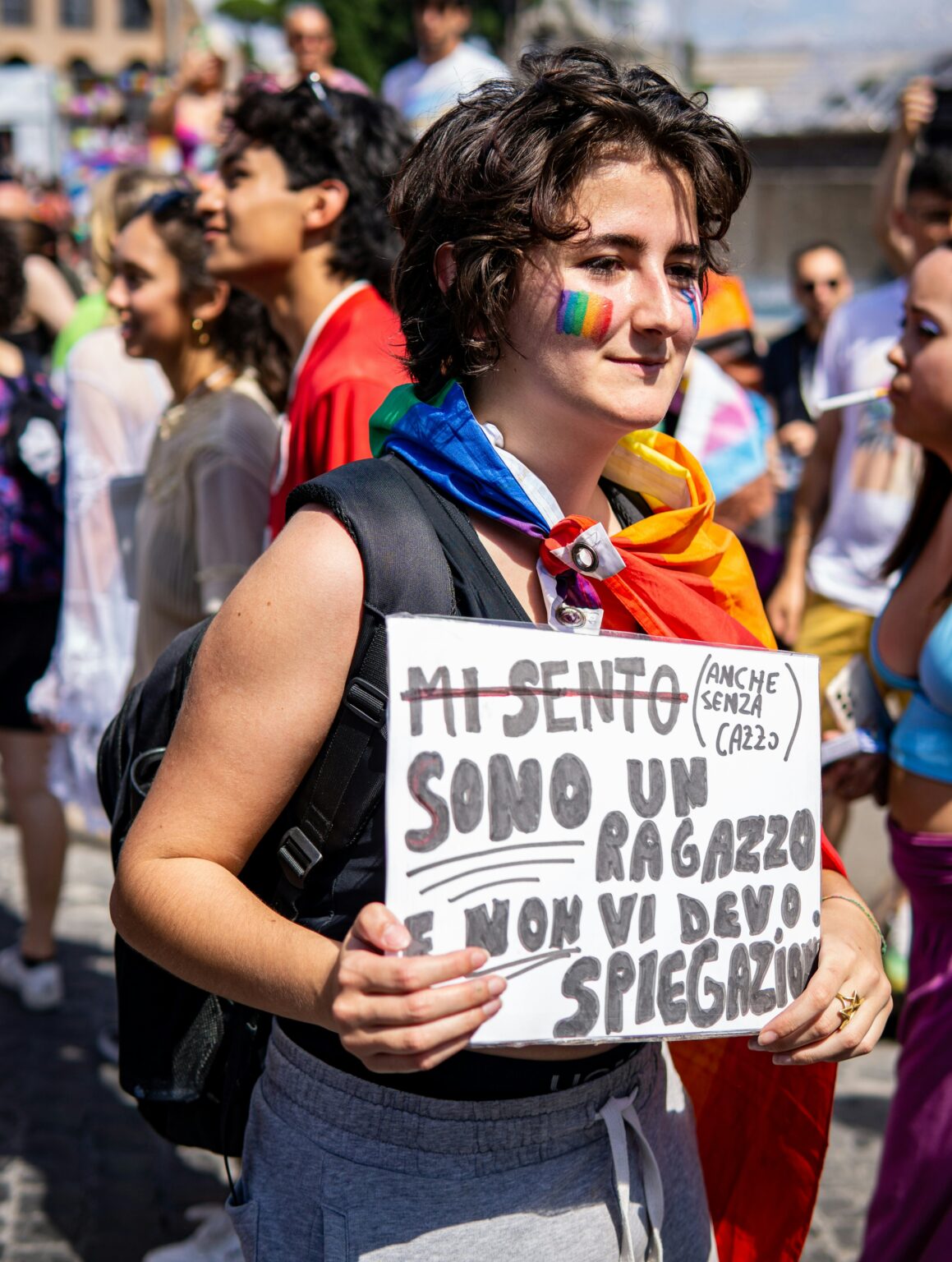LGBTI activism in the new far-right era

Activists in the Balkans, Greece, Italy and Poland talk about the shared challenges across Europe as the far-right continues to gain ground.
As the far-right gains a serious foothold across Europe, LGBTI groups and organisations continue working and living in the reality that is becoming more and more taxing. Inspired by conversations with activists from Intersex Greece, GayNet Italy, Love Does Not Exclude in Poland, and Trans Mreza Balkans, this blog highlights the shared challenges faced by LGBTI organisations amidst the rising tide of far-right politics. If you are working in an LGBTI NGO, you will undoubtedly find yourself familiar with at least some of these issues.
Financial instability and resource constraints
Many LGBTI organisations face financial instability, relying heavily on external funding with little to no governmental support. External funding poses its own set of challenges as it is often project-based with flexible or core funding hardly available. Such dependency forces organisations to juggle multiple projects. This makes them to expand their expertise in the need to secure necessary funds but it turns to be unstainable in a long run.
Hubert Sobecki, Board Member of Love Does Not Exclude in Poland explains: “We are growing too fast with too few people and too many tasks and processes in hand. The lack of sustainable dedicated funding makes it impossible to plan long-term.” At the same time, strategy and long-term planning is what’s needed in the face of well-organised populist far-right tide.
(Too) rapid organisational growth
Activism is growing as a response to anti-democratic developments and the failure of many states to uphold human rights. Such rapid organisational growth, coupled with limited resources, poses significant challenges. As grassroots movements evolve into more structured organisations, they encounter numerous administrative and operational hurdles as well as a mental toll. These include implementing professional systems, managing cybersecurity, and adapting to increased administrative burdens, while at the same time striving to keep the human-centred family-like essence that many LGBTI groups hold as one of their core values.
Hubert Sobecki from Love Does Not Exclude further notes: “You start as a tight group protesting in the streets and gathering in cafés. Then you find yourself with a large budget and funding to manage, and suddenly you are an employer. This brings internal crises and the need for professionalisation, which we struggle to achieve with limited knowledge, time, and financial and human resources.”
Internal communication
Effective communication and coordination within the LGBTI movement are crucial yet often lacking, as many groups and organisations are pushed into reactive and defensive mode by rapidly growing anti-LGBTI attacks and far-right rhetoric. The rush to respond to external threats and media coverage often lead to disjointed efforts and missed opportunities for collaboration. Additionally, generational differences and varying communication preferences within the community can create friction and hinder cohesive action. Džoli Ulićević from Trans Mreza Balkans says: “There is not enough communication amongst ourselves. Different generations have very specific requests about communication – inside and outside the community.”
Educational gaps and capacity building
The educational systems in many countries fail to adequately address LGBTI issues, resulting in a lack of trained professionals and widespread ignorance and misinformation about the community’s needs. This gap extends to higher education, where legal and social studies often neglect or openly restrict LGBTI topics, leaving future professionals ill-prepared to support the community. Nicole Pikramenou from Intersex Greece emphasises, “There is a profound lack of courses on LGBT and intersex issues in the system of higher education in Greece. Professors who supervise legal theses on LGBTI issues often have no training in these areas.”
Strategic vision
The LGBTI movement both requires and longs for a strategic vision and long-term planning to navigate the complex and evolving political landscape. However, many organisations have had to focus on immediate, reactive measures rather than developing sustained, proactive strategies. Building a long-term perspective, enhancing day-to-day operational skills, and fostering collaboration with broader civil society are essential for enduring progress. Rosario Coco from Gaynet in Italy highlighted the need for “a long-term perspective while boosting our skills in day-to-day tools we use” in the face of rising conservative powers – “for example, it is essential now to know how to debate and prepare for a debate.”
Media representation
Adequate balanced media coverage of LGBTI issues has seen a noticeable decline, contributing to the marginalisation of the community. When LGBTI topics are covered, the media often adopts a sensationalist tone, focusing on what they perceive as the most controversial issues like surrogacy and transgender minors. This perpetuates negative stereotypes, as Rosario Coco from Gaynet Italy observes: “Media talks less about us and at the same time, media is less friendly than before.”
Community building and new ways to do activism
The need for psychological support and community building is critical, especially in regions with heightened hostility. Aleksa Milanović from Trans Mreza Balkans notes: “A lot of young people are joining the movement with specific requests about communication and support. We need to mentor them to think strategically and have a vision.”
Additionally, the need for unrestricted funding to support innovative and effective activism is needed. According to Džoli Ulićević: “We must start being very creative and rethink how we organise, maybe sometimes going back to the door-to-door hit-the-street activism because the old-school rigid NGO model is not working anymore; it is not addressing new challenges and is inefficient the reality we live in.”
More resources
The quotes in this blog were taken in the framework of ongoing conversations we have with LGBTI activists about the impact of rising far-rights. This set of conversations happened as a follow-up on the programme ‘Strengthening the European LGBTI movement in the Context of Rising Anti-LGBTI Forces’ that ILGA-Europe ran in 2021-2022. In the aftermath of the programme we created resource cards for The Hub, our free learning centre for the LGBTI movement.